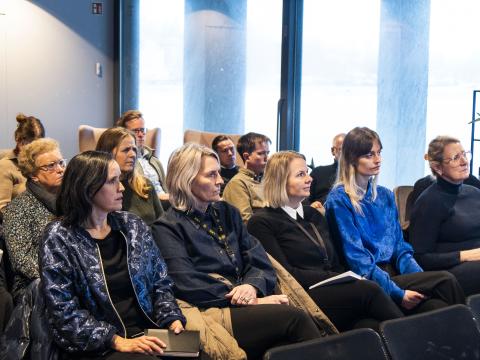LGBT+ individuals face poorer health and well-being compared to others
Health Human Rights

LGBT+ individuals generally experience worse health and well-being than their non-LGBT+ counterparts, highlighting a clear need for action to address these disparities. These findings were revealed in the "Health and Well-being of LGBT+ People" study, presented today at City Hall.
The "Health and Well-being of LGBT+ People" research project, part of Reykjavík's Public Health Policy Action Plan, received funding from the Student Innovation Fund in summer 2024. The project was a collaboration between Reykjavík City and Samtökin '78 - The National Queer Organization of Iceland. The study drew on data from the "Health and Well-being" survey, conducted every five years by the Director of Health's office. The research focused on key factors such as experiences of violence, alcohol and substance use, and mental health, illuminating the unique challenges faced by the LGBT+ community in these areas.
The study aimed to determine whether the overall health and well-being of LGBT+ individuals differed from that of cisgender heterosexuals, with particular emphasis on alcohol and substance use and experiences of violence. International studies consistently show that LGBT+ individuals experience significantly poorer health and well-being compared to others, with strong indications of similar trends in Icelandic society.
Findings to shape policies and support LGBT+ health initiatives
LGBT+ individuals fared worse in nearly all key areas examined in the study. They reported poorer physical and mental health compared to non-LGBT+ individuals and were more likely to have experienced or suffered from chronic fatigue, anxiety, stress, post-traumatic stress disorder, and/or depression. LGBT+ individuals were also more likely to have experienced various forms of violence, including emotional, physical, or sexual abuse.
The findings will inform the development of more targeted actions and policies to support the public health of LGBT+ people. Prevention is a key factor, as well as education about LGBT+ issues within the healthcare system and increased support for the LGBT+ community.

Harpa Þorsteinsdóttir, project manager for Public Health Affairs at the Office of the Mayor and Chief Executive Officer.